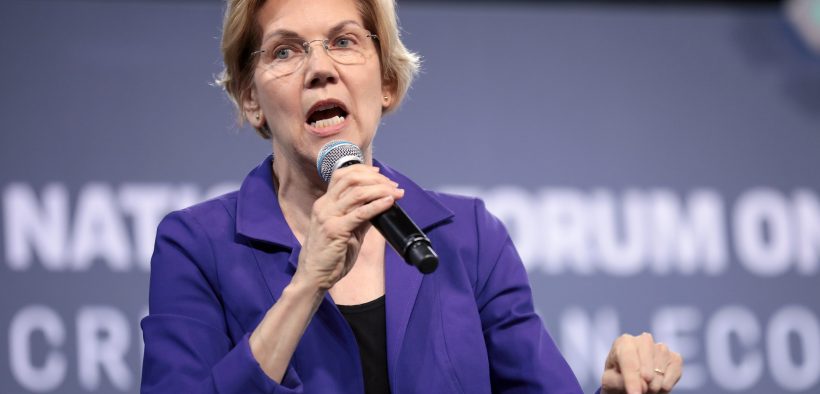Warren Criticized For Plan to Criminalize Election Disinformation

Warren’s plan was criticized for giving the state the power to censor and criminalize internet content and for failing to define ‘disinformation.’
On Wednesday, Senator Elizabeth Warren’s presidential campaign released a statement detailing her plan to combat election disinformation online.
Primarily, the statement refers to the alleged foreign interference in the 2016 election and the subsequent Mueller Report. But it offers little definition as to what is and what is not considered ‘digital disinformation’.
The release also discusses the growing concern that misinformation tactics are being used to suppress the vote, a phenomenon which social media companies like Facebook have taken some action on.
While tech and social media companies have an outsized impact on elections through advertising and reach, a plan to combat ‘digital disinformation’ is likely to draw plenty of scrutiny from those worried about free speech and a free press.
Editor of Current Affairs Nathan J. Robinson tweeted in reaction to Warren’s plan, “This is such a horrible idea that I don’t even know where to start with it. It would directly threaten the livelihoods of independent media outlets like mine. If these companies are worried about liability for “disinformation,” they might allow only “mainstream” sources.”
Attack on Media
Many independent media outlets and readers alike have felt the effect of the hysteria over the allegations of foreign election interference in the 2016 presidential election. With this said, Facebook, amongst other social media companies, has been caught up in some truly awful scandals that display the limits of their ability to responsibly oversee their website.
Facebook had to admit that its platform was used to add fuel to the fire to the ongoing genocide of the Rohingya Muslims in Myanmar, and worse it failed to prevent hateful disinformation from spreading.
BBC Africa also detailed the deadly consequences Facebook’s inaction led to in Nigeria, where the social media giant was used to sow ethnic and religious divides. In 2018, Facebook contracted only four full-time fact-checkers from a third-party company.
Senator Warren does highlight a real problem with social media giants, their inability or unwillingness to responsibly moderate platforms with hundreds of millions of users. But, the limited fact-checking and algorithmic changes Facebook has made have already been heavily criticized.
Like the Warren campaign, Facebook and other sites have failed to properly define what qualifies as disinformation and misinformation. Furthermore, Facebook’s contracting out fact-checking services allows the company to pass off the blame to another company if something goes awry.
The key to how to combat disinformation importantly lies with who gets to decide what should be removed and what should be allowed, another noticeable omission from Warren’s plan.
“I’ve got a plan for that”
Senator Warren’s 2020 presidential campaign has built itself with the image of Elizabeth Warren as a bookish policy wonk who has a plan for everything. On the campaign trail she regularly uses the refrain “I’ve got a plan for that”, and her campaign website even sells a collection of “Warren has a plan for that” merch.
While her campaign has plateaued and dipped according to many recent polls, Warren has had to attempt to make changes in campaign strategy. One manifestation was the half-baked face-off with Bernie Sanders over a meeting the two had in 2018.
While the Warren-Sanders face-off was short-lived, Sanders has only risen in the polls since while Warren has dropped.
Sanders has a solid base, and Warren has struggled to expand on hers’ and differentiate herself from Sanders, the most left-wing candidate in the field.
An appeal to fear of election interference is a legitimate policy concern within some portion of the Democratic electorate, with disaffected Clinton voters amongst this group.
While misinformation and social media companies’ concentration of power needs to be addressed in a substantive manner, Warren will struggle to generate support without providing further details. As it stands, without detail Warren’s proposal gives fodder to right-wing pundits and angers a large portion of her own potential electorate.
Unfortunately for the Warren campaign, the “I’ve got a plan for that” slogan falls flat when the most key information is absent from the plan.











